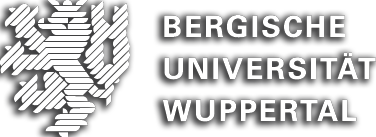History and Goals
In the early 1980s, under the initiative of Rudolf Groner (Bern), Dieter Heller (at that time in Bayreuth) and Henk Breimer (Tilburg), a transdisciplinary network was founded under the informal name of “European Group of Scientists active in Eye Movement Research.” It was joined by numerous scientists from various research areas, all using eye movement registration as a research tool and developing models based on oculomotor data over a wide range of phenomena, from the neurophysiological to the perceptual and the cognitive level. The group’s goals include facilitating the exchange of information about current research, equipment, and software, and to organize a conference every two years at a different location around Europe.
Previous Conferences
ECEM 1 1981, September 16-19, Bern, Switzerland
ECEM 2 1983, September 19-23, Nottingham, UK
ECEM 3 1985, September 24-27, Dourdan (Paris), France
ECEM 4 1987, September 21 - 24, Göttingen, Germany
ECEM 5 1989, September 10-13, Pavia, Italy
ECEM 6 1991, September 15-18, Leuven, Belgium
ECEM 7 1993, August 31-September 3, Durham, UK
ECEM 8 1995, September 6-9, Derby, UK
ECEM 9 1997, September 23-26, Ulm, Germany
ECEM 10 1999, September 23-25, Utrecht, the Netherlands
ECEM 11 2001, August 22-25, Turku, Finland
ECEM 12 2003, August 20-24, Dundee, Scotland
ECEM 13 2005, August 14-18, Bern, Switzerland
ECEM 14 2007, August 19-23, Potsdam, Germany
ECEM 15 2009, August 23-28, Southampton, UK
ECEM 16 2011, August 21-25, Marseille, France
ECEM 17 2013, August 11-16, Lund, Sweden
ECEM 18 2015, August 16-21, Vienna, Austria
A number of former conference chairs serve in the present ECEM scientific committee, a body tasked with selecting conference venues and providing strategic advice to the organizing team.
The ECEM conference series is unique in that it combines different scientific perspectives: There is excellent basic research aimed to better understand the neural and sensorimotor processes governing the control of eye movements. Furthermore, as eye movements are part and parcel of human perception and information processing, they are widely used as a research tool to study important domains of our mental life such as reading, learning and problem solving, emotion, and social cognition. Finally, there is a rapid growth of real-life applications in clinical, educational, and industrial contexts.
An important feature of ECEM 2017 are the preconference workshops, giving over 200 participants - mostly doctoral students - the opportunity for training with outstanding experts in experimentation, data analysis, and modeling.
This year’s conference is hosted by the University of Wuppertal, a young and rapidly growing university with a strong focus on cutting edge research. With many unique academic programs and a reputation for excellence in teaching, Wuppertal is an attractive destination for international students, currently from well over 100 countries.








